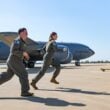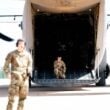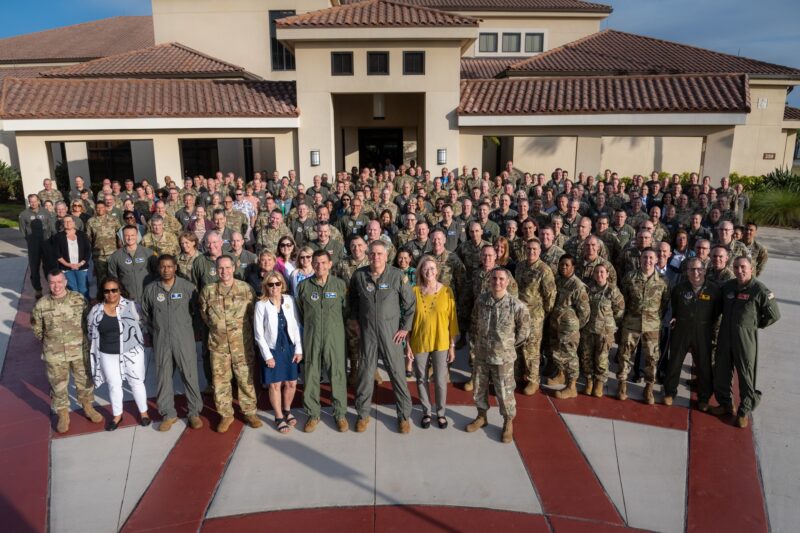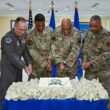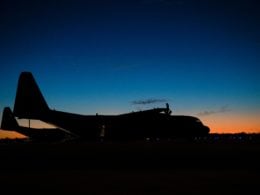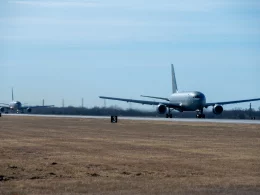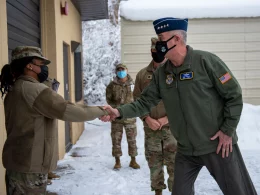MACDILL AIR FORCE BASE, Fl. —
On Jan. 28, 2022, Gen. Mike Minihan, commander for Air Mobility Command, posted a tweet with four simple words: Warrior Heart. No Stigma., along with a screen shot of a mental health appointment on his calendar. From that moment on, Warrior Heart became the mantra for a culture focused on fine tuning the mind, body, and craft to fortify the will to win.
That was the focus during the opening days of Spring Phoenix Rally held at MacDill Air Force Base, Florida, April 17-21, 2023. More than 250 Total Force Mobility leaders and spouses spent two days discussing ideas and ongoing efforts that bring the mind into balance with body and craft.
“Warrior Heart is not a program, but rather, about our climate and our culture,” said Minihan. “So when I say mind, body, craft, I mean elevating the mind to the same level as body and craft.”
Minihan continued with his three objectives to helping Airmen put their mental health on equal footing with physical fitness and honing their craft: eliminate stigma, lower barriers and increase access and options.
Col. Derek Salmi, 60th Air Mobility Wing commander, led the discussion that looked at warrior culture from a variety of different lenses including sports, literature and spirituality as well as highlighting internal efforts at all echelons to get after the commander’s objectives.
Salmi highlighted CAPT (ret) Charlie Plumb, a Vietnam War prisoner of war who spent 2,337 days in the Hanoi Hilton after being shot down on his 75th mission. According to Plumb, post-conflict surveys showed signs of post-traumatic stress in about a third of Vietnam veterans, while PTS among former POWs was only between four and eight percent, dramatically lower despite everything they endured.
“Captain Plumb attributed that to one thing,” said Salmi. “The leadership that was in the Hanoi Hilton and the fact that they set the conditions, set the focus and embodied what Warrior Heart is. Leadership matters.”
Coach Scott Davenport, head coach of the Bellarmine men’s basketball team, discussed his approach to building a winning culture, which include pressure on and off the court.
“We have a saying in our program that preparation is going to lead to confidence,” said Davenport. “But at the end of the day, when they leave that huddle, who do they have? Each other. They don’t have us, they have each other.”
You need a plan academically, athletically and socially to build a winning culture, he continued. It is about being a part of something bigger than you and wanting it for others.
He also urged everyone to never delay gratitude. “It takes 1.8 seconds to say ‘thank you,” said Davenport.
Following Davenport’s speech, several wing commanders highlighted initiatives at their bases including Operational Support Teams at Little Rock AFB that’s focused on embedded support and care within at risk squadrons; the White Rope program at Dover AFB, which is a continuation of a support program typically seen at basic military training and technical schools; Vance AFB’s Comprehensive Readiness for Aircrew Flying Training (CRAFT) facility, a human performance lab that includes cognitive and nutrition specialists among other things; and Travis AFB’s Mind Gym and Comprehensive Airmen Fitness Madness Challenge, which funds quality of life upgrades in the dorms, work facilities and fitness areas.
It was a small sampling of ongoing initiatives across the Mobility Air Force, but the roundtable allowed for cross-talk and information sharing in order to fuel mind, body and craft together.
AMC’s Command Chaplain Mike Newton focused on the Will, which he defined as the choice to act, having a clear purpose behind the action, and the beliefs, principles and values guiding you.
Essentially, it is about the ability to lead and control one’s life, said Newton. “And those components need to be active whenever an Airman needs to access them. Sometimes by making it too easy or soft, we take away the options they need to execute.”
He emphasized the need for putting Airmen into “a productive struggle and a growth zone” by starting with a challenging standard or objective, a sense of motivation, sources of support, and accountability that, over time, yields a belief that success is the result of effort more than raw talent.
“We are in the profession of arms, the maintenance of violence,” said Newton. “And I think one of the biggest challenges we’re going to have as leaders is creating the culture and the ethos of the calling and the necessity of that…Airmen are the Magic.”
Lt Col (ret.) Jeff Ulmer, a former KC-10 pilot and instructor at the U.S. Air Force Academy, built on Newton’s remarks by using poetry from past conflicts to bring into sharp focus the reality of war including despair, suffering, betrayal, moral ambiguity and horrible death.
“However, when the leaders I’ve served with are able to give you the truth, to show you what it is and they still ask you to do it, then it’s probably worth fighting for,” said Ulmer. “And if you’re still willing to do it, then you’re probably the right person for the job.”
Capt. Jane Marlow, Phoenix Torch fellow, closed the discussion by presenting her cross-functional team’s leadership approach to building Warrior Airmen.
“Our leaders, systems and policies are not prepared to effectively leverage our most critical combat asset – our Airmen,” Marlow posited.
Through a detailed review of Air Force Instructions, Marlow’s cross-functional team identified policies that don’t match current research and modern standards for care that is harming Airmen’s careers when they do what they’ve been urged – ask for help.
Her approach includes three lines of effort: Pathways to Care, Regulatory and Policy Updates and Building and Strengthening Command Teams.
Pathways to Care focuses on education informing Airmen and supervisors about first-tier care options, such as Military One Source, Military and Family Life Counseling, peer counseling and group therapy that’ll take burden off strained mental health clinics.
Regulatory and Policy updates focuses on outdated policies and antiquated waiting periods that do not match current medical guidance. In some cases, these policies are preventing Airmen from returning to duty despite medical professionals certifying them mentally fit.
“These waiting periods are very unique to mental health and are not based in robust science or data, they’re based in the ways we’ve always done it,” said Marlow. “This is an example of a myriad of regulations and policies that are woefully out of date, that are limiting our ability to field Warrior Airmen and forcing our command teams, mental health providers and flight surgeons to expend incredible amounts of energy fighting a system and a policy rather than fighting our adversary.”
Building and Strengthening Command Teams recognizes the importance of being led by the best. This requires commanders to know who they are and how they lead, and providing leaders with regular access to mental health care during an extremely stressful period, also allowing them experiential knowledge of what their Airmen may go through and setting the example.
AMC has contracted experts in mindfulness, self-care and resiliency who will focus on wing- and squadron-level support. These experts will soon work with wing command teams to develop presentations, workshops and exercises that’ll help Airmen “lead and win at life.”
Minihan closed the discussion by emphasizing what matters most when it comes to culture change and support for Airmen.
“At the end of the day, no matter what program we roll out, no matter how eloquent the rejoin is, how much money we spend, it’ll never, ever, ever substitute for supervision and command when it comes to what our Airmen need.”


